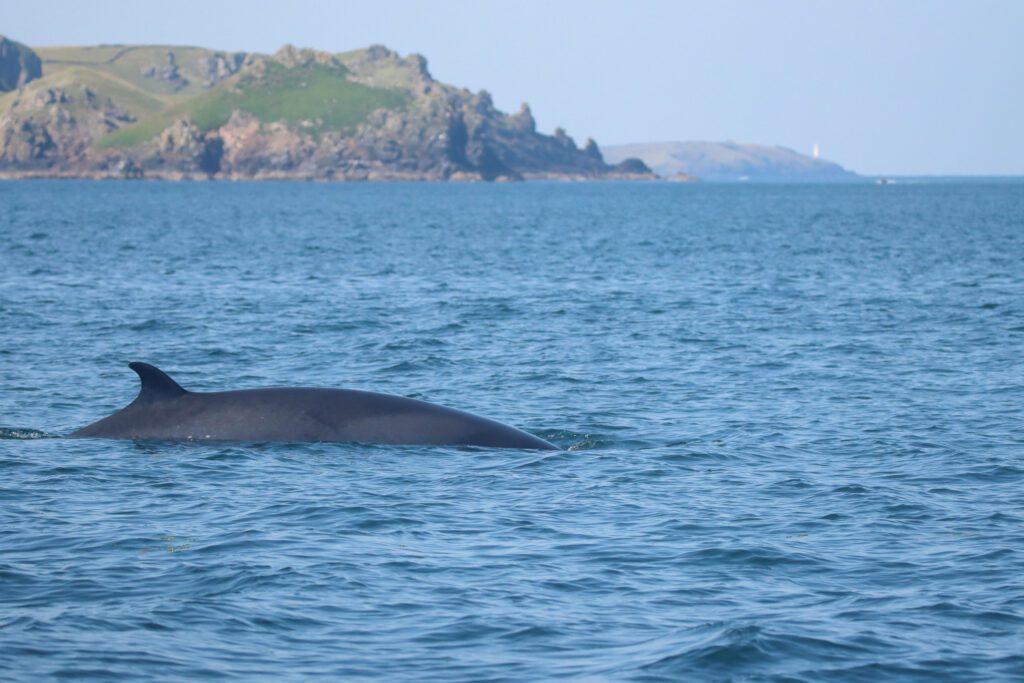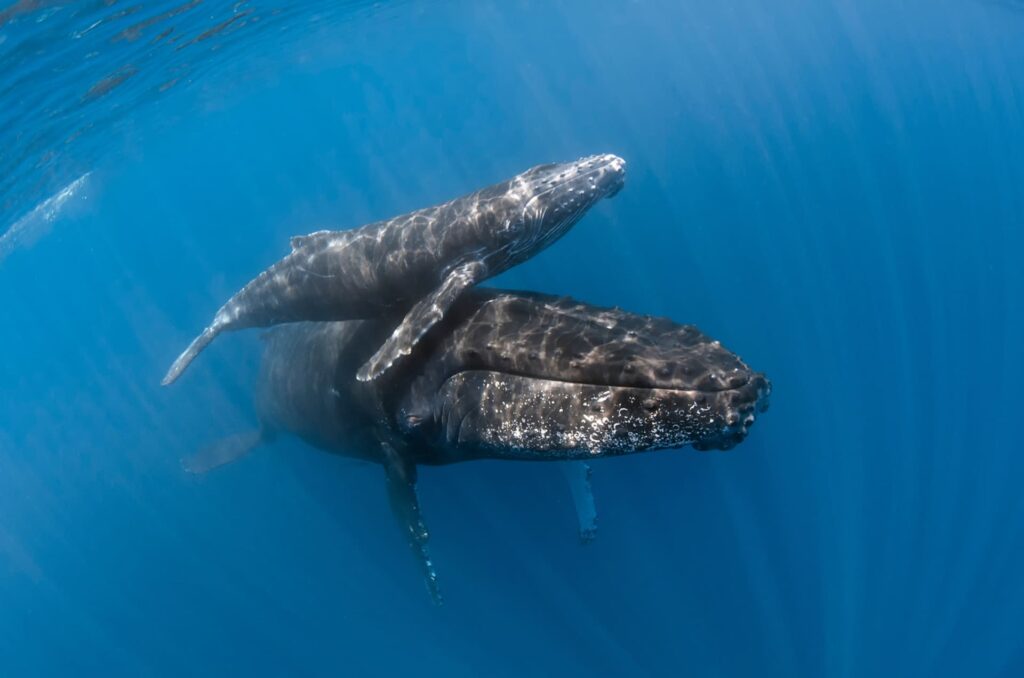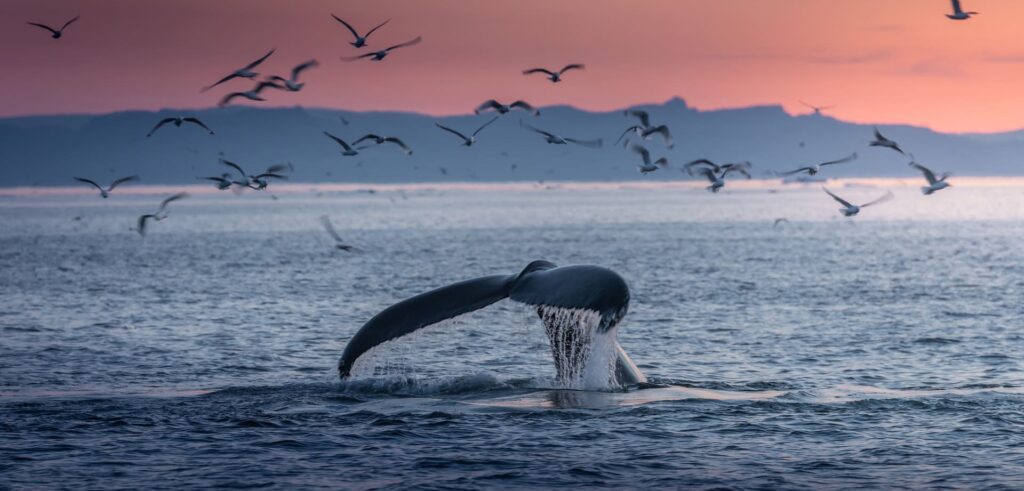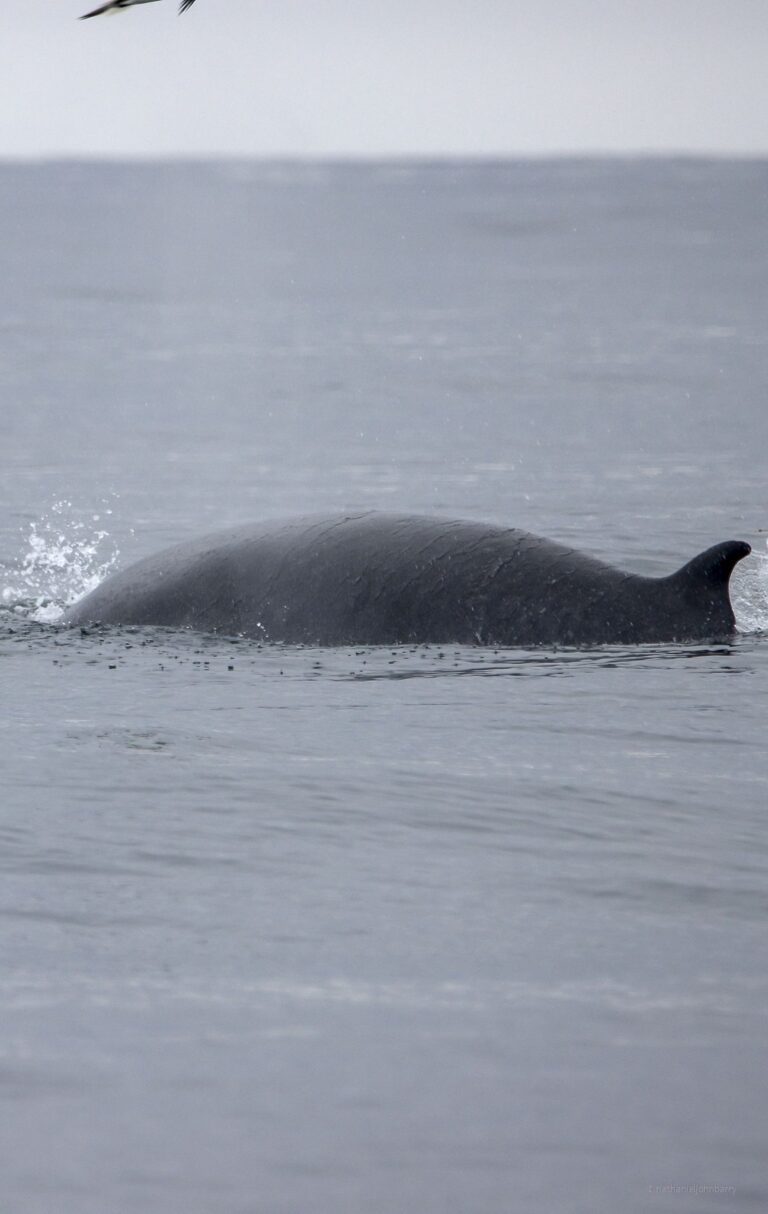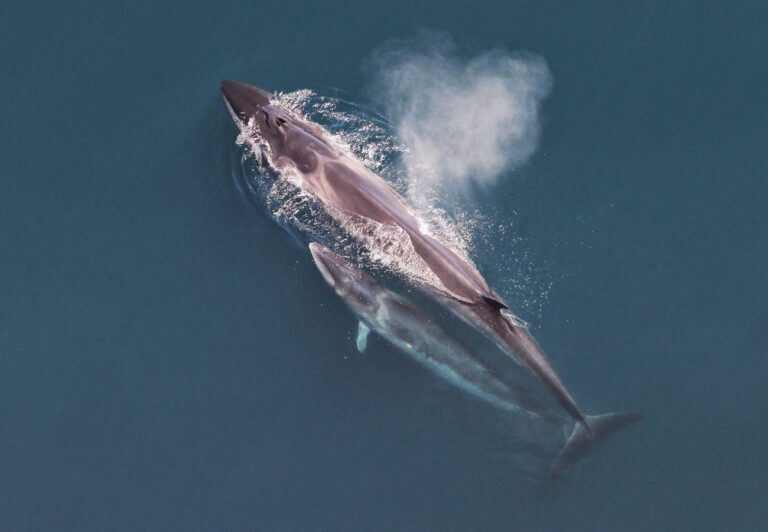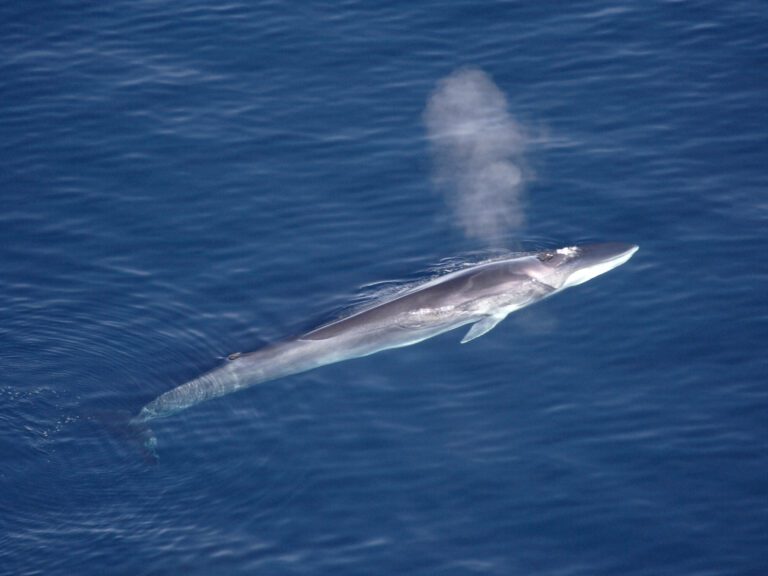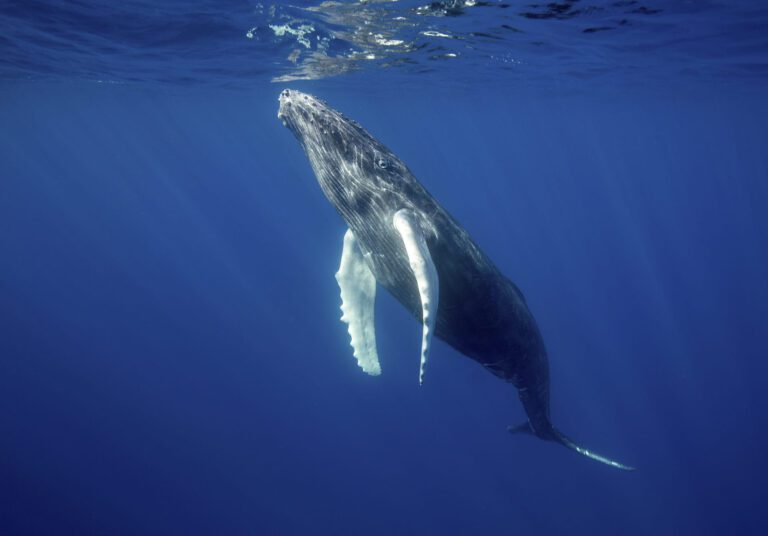How often do you see whales on our boat trip?
When we started Padstow Sealife Safaris it was incredibly rare to have whale sightings in Cornwall. In recent years, we have seen the number of whale sightings grow. We now see whales regularly throughout our season, but we never take it for granted. It’s an unforgettable experience to see such majestic mammals up close!
Whale sightings may have increased due to a growth in population, a change in ocean currents or the designation in recent years of Padstow Bay as a Marine Conservation Zone. Regulation of activities in these waters could have had positive knock-on effects on the food chain, attracting larger predators like whales.
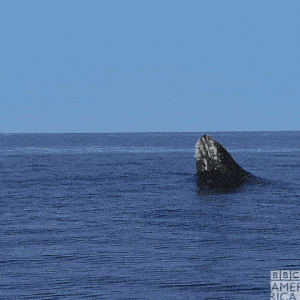
3 interesting facts about whales:
MINKE WHALES
90
There are currently 90 recognised species of whales, dolphins and porpoises in the world.
150 DECIBELS
Whale FAQs
Each whale species behaves differently, but there are some behaviours that apply to most whales that continue to amaze us. ‘Breaching’ whales are a spectacular sight; this is when whales launch themselves out of the water, twist, and slam back down. Mind the splash! They could be doing this to communicate, remove parasites, warn off predators, or perhaps they’re feeling playful.
Another great sight is when whales ‘blow’, shooting air from a blowhole on top of their head with immense force. Many people think it’s water being blown out, but when a whale surfaces it releases it’s warm breath before inhaling again. Whales are mammals and can’t breathe underwater, so they surface to stock up on oxygen.
Whales are a social animal, and travel in numbers called ‘Pods’. A pod is roughly made up of 2-30 whales, but multiple pods can join together of up to a few hundred whales during breeding seasons.
There are 28 species of cetaceans that have been sighted in the UK, some are here regularly, and others have been sighted once or twice displaying abnormal behaviour – remember the Beluga whale swimming in the Thames in 2018? Luckily for us here at Padstow Sealife Safaris, increasing numbers of migrating whales head to the UK during the Summer season to feed.
Experts believe whale populations are growing due to recovering from commercial whaling bans and warmer waters making the UK shores more appealing. We’re also seeing a growing number of returning whales. They must love Cornish waters as much as we do!
